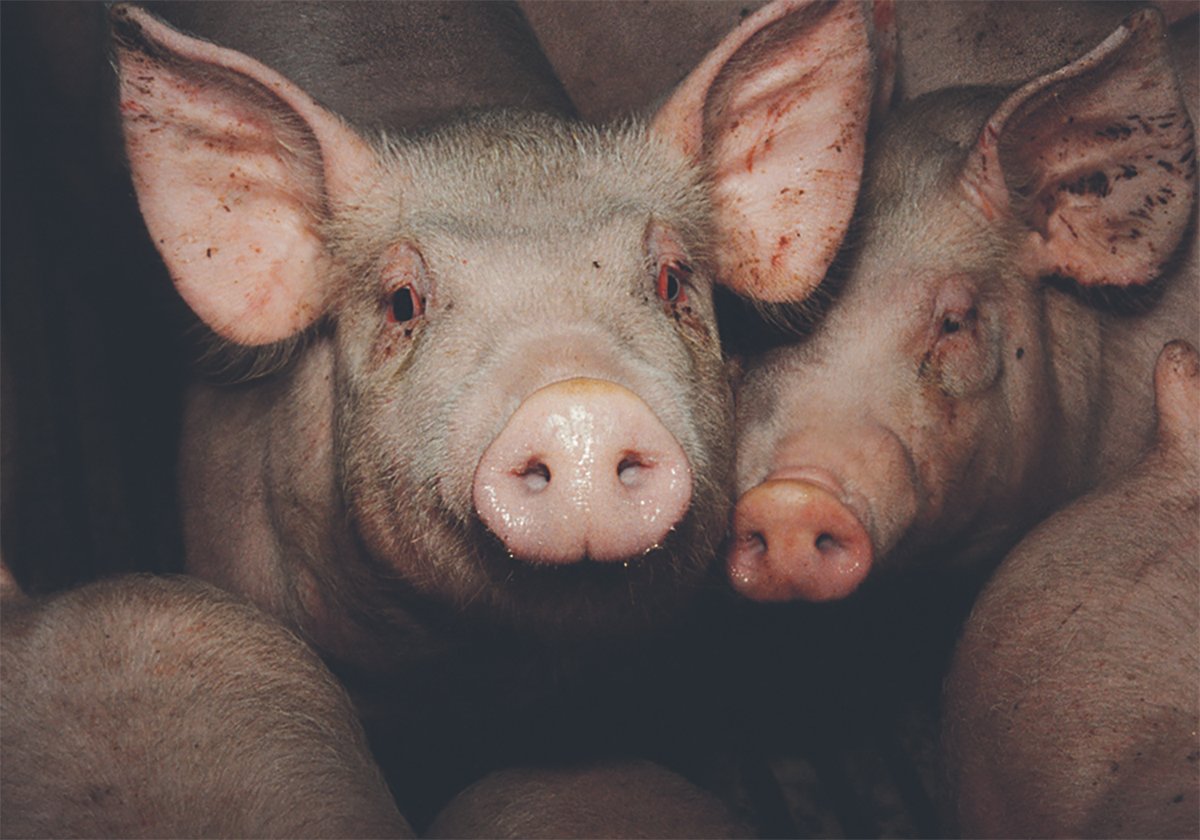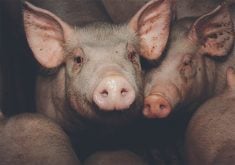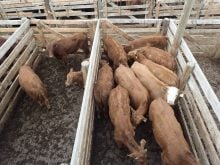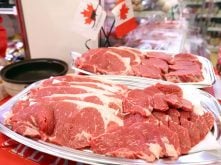EDMONTON – Two British Columbia egg producers attending the Canadian Federation of Agriculture meeting here, say the future is uncertain.
The comfort of supply management has been replaced with high tariffs under the General Agreement on Tariffs and Trade. Jack Pope of Kamloops, and Margaret Speitelsbach of Kelowna, said in an interview that they want to know how long the 192.3 percent tariff on eggs will last.
Will the government negotiate it away in exchange for a better deal favoring a larger commodity? These egg producers didn’t want Canada to trade supply management for tariffs under GATT.
Read Also

The Western Producer Livestock Report – October 30, 2025
Western Producer Livestock Report for October 30, 2025. See U.S. & Canadian hog prices, Canadian bison & lamb market data and sales insights.
Speitelsbach asked federal agriculture minister Ralph Goodale that question directly at the CFA meeting but didn’t get what she felt was a satisfactory answer.
“Even though they (the tariffs) are the lowest of all the commodities we don’t know whether they will even hold. What happens in six years? The Americans are obviously going to push for zero tariffs,” Speitelsbach said.
“As the tariff levels go down, depending what American prices are, we may have to take less than our cost of production (to keep U.S. eggs out of Canada),” said Pope.
Push to eliminate tariffs
Canada is required to reduce all tariff levels by at least 15 percent over the six-year GATT implementation period. The United States wants the tariff gone in 10 years under the rules of the North American Free Trade Agreement.
“That leaves farmers very uneasy insofar as investing money in this industry,” Speitelsbach said.
“All supply management has the same concerns,” said Pope.
Besides eggs Speitelsbach and her husband produce broiler chickens, which carry a 280 percent tariff. They are not ready to sell the farm because tariffs may not be all bad.
“It was the best that could be achieved at the time and we will do our best to make it work for us. We’re not going to pack up and go home,” said Pope.
Other GATT repercussions may affect their future. If the world price of grain rises, so will the cost of producing eggs. Theoretically, the same factor should affect their U.S. competitors. As B.C. producers they are entitled to apply for feed freight assistance. If that program changes or gets dropped, it will also affect their input costs.
What is efficiency?
The two egg producers insist they’re more efficient than their American counterparts. Further, they say, Canadian poultry products are safer, having gone through a stricter inspection system. Their disadvantages are higher taxes, labor and feed.
“We can prove that we’re more efficient but what government and bureaucrats are talking about is bring the price down. That is not necessarily efficiency,” said Speitelsbach.
As a frequent visitor to the U.S., she says the Americans are not selling their eggs, dairy products or milk cheaper than Canadians. There may be regions with lower prices but there are also times when the U.S. has to dump excess production. She doesn’t want that dumping ground to be Canada.
To survive, egg producers say they will rely on the Canadian Egg Marketing Agency and CFA to lobby government. Also, industry survival will require education for consumers and government officials as well as agriculture-in-the-classroom programs.
If people remain ignorant about supply-managed industries, those same people could later become policy makers that would wipe out industries, said Speitelsbach. To preserve their industry producers will have to join hands across the country.
“There’s been too much provincialism. We have to get over that before the six years are up,” said Pope. Government won’t support the industries if they are divided, he said.















